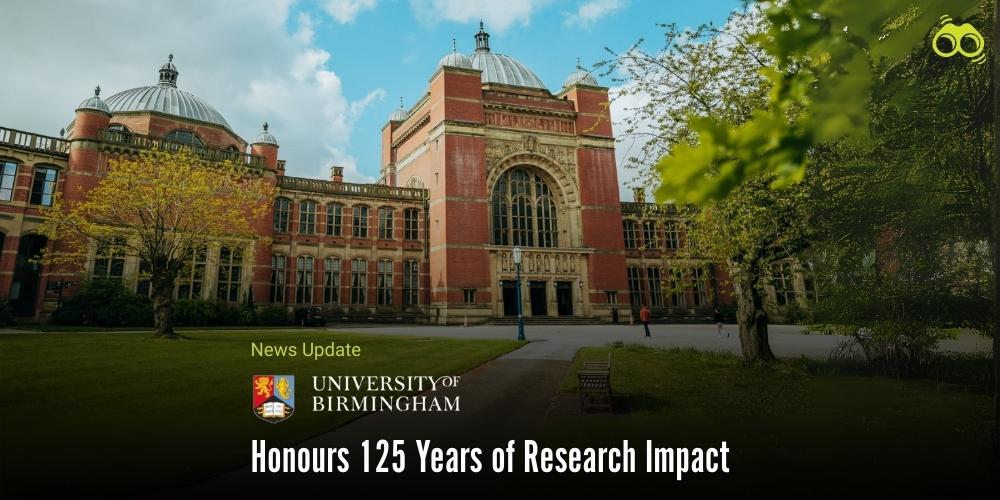125 Years of Discovery: Impact Awards Recognise Groundbreaking Achievements
Birmingham’s Impact Awards Highlight Global Research Contributions
The University of Birmingham recently hosted a special event at The Exchange to celebrate groundbreaking research and its lasting impact on society. The gathering brought together researchers, research enablers, and external partners, highlighting the university’s commitment to innovation and discovery over the past 125 years.
The evening was hosted by Kathryn Stanczyszyn, an award-winning journalist and University of Birmingham alumna. During the ceremony, more than 20 university colleagues and their external collaborators were honoured for their contributions. Their achievements were met with applause and recognition, with winners receiving certificates and commemorative glass sculptures crafted by local artist Nadia Lammas. Professor Dominique Moran, Deputy Pro Vice Chancellor for Research Impact, explained that the University of Birmingham Impact Awards recognise the dedication of the research community. He added that this year's awards were especially meaningful as they celebrated the winners within the context of the university's 125-year history and the long-term impact of their work.
To celebrate its 125th anniversary, attendees were introduced to impactful research from the University of Birmingham’s history, showcasing its ongoing relevance. One key achievement highlighted was the development of the world’s first patient-controlled variable rate pacemaker, alongside current research into early detection and remote healthcare monitoring. The event also showcased the role of beetle elytra in illustrating the speed of climate change during the Ice Age, alongside ongoing research focused on sustainability. The enduring legacy of Professor Stuart Hall and the Centre for Contemporary Cultural Studies was highlighted, particularly their impact on global social justice, including the work of the Stuart Hall Archive Project.
The event also highlighted the contributions of research centres like the Institute for Textual Scholarship and Electronic Editing, as well as the upcoming Birmingham Transformative Humanities Lab, which uses technology to advance our understanding of the arts and humanities. Additionally, the ongoing impact of Nobel Prize-winning research by Professors Mike Kosterlitz and David Thouless on phase transitions and metamaterials was celebrated.
The annual Impact Awards, a key component of the University of Birmingham’s research culture, celebrate outstanding contributions across various fields and encourage a thriving environment for world-leading research. This year’s awards honoured several individuals and teams for their exceptional work. Caroline Durbin, Research Communications Manager in the College of Life and Environmental Sciences, was recognised with the Support for Impact award. The Global Health award was given to the Birmingham Symptom-specific Obstetric Triage System (BSOTS) team, led by Professor Sara Kenyon MBE.
Dr Faye Sayer was recognised with the Connecting Cultures award, while Dr Holly Birkett was honoured with the Inclusive Impact award. Dr Xilin Xia received the Thriving Planet award, and the PrecisionTox team, led by Professor Aleksandra Cavoski, Professor Robert Lee, and Dr Laura Holden, won the Ethical Research Impact award. Professor Sabine Lee was presented with the Fairer World award, and Dr Robert Neely was awarded the Life-Changing Technologies prize.
The Early Career Researcher award was presented to Dr Benjamin Perry, while the Civic Purpose award went to the West Midlands Climate Risk and Vulnerability Assessment (WM-CRVA) team, led by Dr Emma Ferranti. More information about the winners can be found on the University of Birmingham’s Impact Awards page. The event underscored the university’s legacy of impactful research while celebrating the contributions of individuals and teams shaping the future.
Editor’s Note:
The University of Birmingham’s 125th anniversary celebration, marked by the annual Impact Awards, highlights a proud legacy of research that extends far beyond the classroom. The event not only honoured individuals and teams making a difference today but also paid tribute to groundbreaking achievements throughout the university’s history, ranging from advances in healthcare and climate science to global social justice and the humanities. By showcasing both past and present contributions, the university affirmed its commitment to research with real-world relevance. In an era where the value of higher education is often questioned, events like these are essential. They remind us that universities are not only centres of learning but also engines of innovation and progress.
Skoobuzz highlights that through continued support for collaboration, inclusion, and community-focused impact, the University of Birmingham is setting an example of what meaningful academic work looks like.














0 Comments (Please Login To Continue)